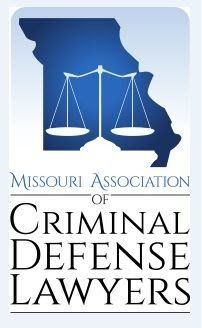VIOLENT CRIME LAWYER
Jefferson County, MO DWI Manslaughter Lawyer
Violent Crimes
While criminal charges of any should be considered serious, few are taken as seriously as charges of manslaughter or murder. A conviction on any of these charges carry some of the strongest penalties available under Missouri law. This includes a potential sentence of many years or life in prison, and possibly even death. Missouri has a number of criminal laws dealing with the killing of another human being. The differences among these laws are discussed below.
We represent individuals charged with the following types of Violent Crimes:
There is no doubt that being accused of killing another human being is one of the most stressful experiences someone can go through. Law enforcement will undoubtedly try to make you feel like there is a tremendous amount of evidence against you, however anything that law enforcement tells you is likely irrelevant or exaggerated. There are numerous defenses to murder and manslaughter charges, including whether the police investigation was properly conducted, the legality of any searches, mistaken identity, accident, alibi, self-defense, or simply that you didn’t commit the crime at all. There is no doubt that the strongest defense is built early in the investigation process. Even if you are only under criminal investigation, legal representation can help ensure your legal rights are not violated.
We will forcefully defend your constitutional rights and your character, from the time of your arrest until trial, or appeal, if necessary. We will aggressively negotiate with the prosecution on your behalf to get your charges reduced or dismissed, if possible. We will also help you evaluate any plea offers that are made in your case. If necessary, we will call upon experts to examine all the evidence on which the State’s case is based, and pinpoint any areas where errors could have been made. Also, we will make certain that law enforcement followed proper procedure when collecting evidence and determine whether any of the witnesses against you have issues with credibility.
- Involuntary Manslaughter, First Degree
- Involuntary Manslaughter, Second Degree
- Voluntary Manslaughter
- Murder, First Degree
- Murder, Second Degree
- Participating Knowingly in Criminal Street Gang Activities
- Promoting or Assisting Criminal Conduct by Gang Members
Involuntary Manslaughter
Involuntary manslaughter is an unintentional killing with the death occurring as a result of an offender’s reckless (1st degree) or criminally negligent (2nd degree) behavior. With involuntary manslaughter, the resulting death is unintended. This offense is often charged in the case of an intoxicated driver that kills his passenger or another driver in a drunk driving accident.
For example, John comes home and finds his wife in bed with her boss, Ralph. John leaves and goes to a nearby bar and gets drunk. While driving home in his intoxicated condition John runs over and kills Ralph. In this case John did not intend to kill anyone, rather the death was caused by Johns criminally negligent behavior, driving while intoxicated.
Under Missouri law the offense of involuntary manslaughter in the first degree is a class C felony for which the authorized punishment is from 3 to 15 years in the Department of Corrections and/or a $10,000 fine. The offense of involuntary manslaughter in the second degree is a class E felony for which the authorized punishment is up to 4 years in the Department of Corrections and/or a $10,000 fine
Driving While Intoxicated (DWI)
Voluntary manslaughter is an intentional killing that occurs in the “heat of passion.” The conditions leading to the killing must be the kind that would cause a reasonable person to become emotionally or mentally unhinged.
For example, change the facts in the above scenario. Instead, John comes home and finds his wife in bed with Ralph. In the heat of the moment, John shoots and kills Ralph.
Voluntary manslaughter is different than murder because there is no prior intent to kill. Rather, due to the immediate situation the offender develops an irresistible emotion to kill that any reasonable person would feel under the same facts and circumstances. The offender does not have the time necessary to premeditate killing the person.
The offense of voluntary manslaughter is a class B felony for which the authorized punishment is from 5 to 15 years in the Department of Corrections.
First Degree Murder
In Missouri, first-degree murder is committed when a person kills someone after deliberation. First degree murder requires that the killing occur after some level of planning or premeditation. Also, the person must intend to take a life.
For example, John comes home to find his wife in bed with Ralph. Two weeks later, John waits for Ralph to leave work. When Ralph is walking to his car John shoots and kills him.
Under Missouri law, “Deliberation” is defined as “cool reflection for any length of time no matter how brief.” In other words, the deliberation need not occur for any specified period. If the perpetrator has enough time to form the requisite intent to kill and then acts on it after enough time for a reasonable person to second guess their choice, they have committed first degree murder. Essentially what this means is that the killing need not have been thought out, or planned well in advance. The necessary intent may be formed within seconds, as long as it is prior to the killing.
The offense of first degree murder is a class A felony with an authorized punishment of either death or life imprisonment without eligibility for probation or parole.
Second Degree Murder
Second-degree murder is the intentional killing of someone that is neither premeditated nor committed in the heat of passion. Essentially, the crime of second degree murder falls between first degree murder and voluntary manslaughter. It is knowingly killing a person or while attempting to cause serious physical injury to a person kills the person or kills another. It is based on actions that show a reckless disregard for human life. Also, in Missouri, if someone dies during the commission of a felony it is considered second degree murder.
Let’s again refer to the above example. John comes home and finds his wife in bed with Ralph and John leaves. The next day John sees Ralph walking down the street and pulls out a pistol and shoots at him. Instead, John hits and kills Mary, an unrelated bystander. Since Johns was attempting to cause serious physical injury to Ralph by shooting him, but instead killed someone else, John has committed second degree murder.
The offense of second degree murder is a class A felony for which the authorized punishment is 10 to 30 years, or life imprisonment, in the Department of Corrections.
Felony Murder
A person can be charged with Felony Murder, which in Missouri is classified as second degree murder, if, during the commission of, or attempt to commit a felony, and another person is killed as a result of the perpetration or attempted perpetration of such felony or immediate flight from the perpetration of such felony or attempted perpetration of such felony. Felony murder may be charged where the person killed is the intended victim of the felony offense, a bystander, or even one of the participants in the crime itself.
Felony Murder is a class A felony and carries the same level of punishment as second degree murder.
DWI Manslaughter
A person commits the crime of DWI Manslaughter when they act with criminal negligence to cause the death of another person while driving in an intoxicated condition. Under Missouri law, criminal negligence is defined as when a person “fails to be aware of a substantial and unjustifiable risk that circumstances exist or a result will follow, and such failure constitutes a gross deviation from the standard of care which a reasonable person would exercise in the situation.” What this means in simple terms is that the person knew of the risks that come with driving drunk, but they drove anyway, and these actions resulted in the death of another.
While involuntary manslaughter, second degree is normally classified as a class E felony under Missouri law, it is treated much more harshly in the DWI context. DWI Manslaughter is a class C felony which carries a range of punishment from 3 to 15 years in the Department of Corrections and/or a fine up to $10,000.
Missouri Violent Crimes Information
Can't Find the Answers?
Fill all information details to consult with our best Attorneys advices.
Areas Served
If you have been arrested, charged, think you may be arrested or charged, or law enforcement is asking to question you in reference to a murder, manslaughter, involuntary manslaughter, or DWI manslaughter investigation, you should speak to a Missouri criminal defense attorney immediately. We handle cases in Jefferson County, St. Francois County, St. Louis County, Ste. Genevieve County, Washington County or Franklin County Missouri, including the cities of Arnold, Barnhart, Bloomsdale, Byrnes Mill, Cedar Hill, Crystal City, Desloge, DeSoto, Dittmer, Eureka, Farmington, Fenton, Festus, Fredericktown, French Village, Herculaneum, High Ridge, Hillsboro, Horine, House Springs, Imperial, Kimmswick, Mapaville, Mine La Motte, Mineral Point, Morse Mill, Olympian Village, Park Hills, Perryville, Pevely, Potosi, Ste. Genevieve, or Valles Mines, exercise your right to remain silent and your right to speak to an attorney immediately.
When you retain the Lednick Law Firm, you are getting the experience of a former Assistant Prosecuting Attorney who knows how to protect your rights when faced with these types of charges and the hurdles they present. Contact us today at 636-638-2150
for an immediate free consultation.



